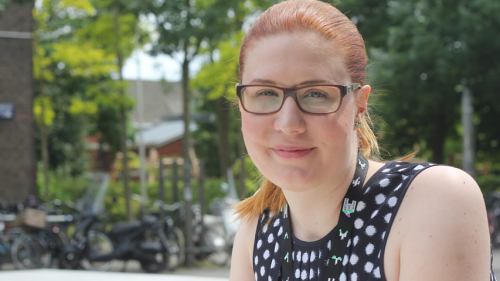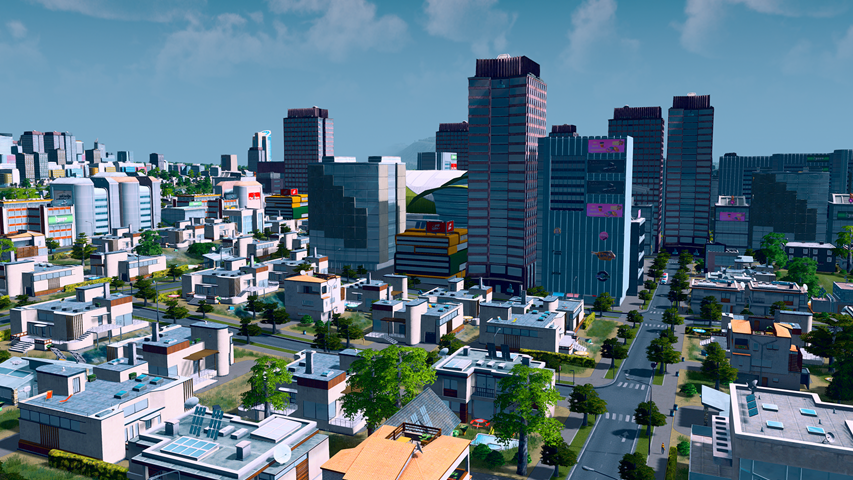Colossal Order: We want to focus on what we like to do
One of the first reports at Unite Europe 2015 was read by Mariina Hallikainen, co-founder and CEO of Colossal Order. Editorial Office App2Top.ru I talked to Mariina about the development of the project and whether the studio is going to bring Cities: Skylines to mobile.
Now there is an opinion that the real SimCity is Skylines. The question is: how much did you focus on the last part of SimCity while making Skylines, what did you take from this game?

Mariina Hallikainen
We started planning Cities: Skylines long before the release of the latest part of SimCity.
We had a very clear and precise understanding of what we wanted to do. And we were actually very scared when we announced SimCity 5, because we thought: “So, they got into the top ten with their project, and they already have experience in this… That’s it, now we will never be able to launch our own citybuilder!”. But because of the problems that their project faced at the very beginning, we still had the opportunity to play on this field.
At that time, we didn’t really want to be compared to the new Sim City, because we had a clear understanding of what our project should be.
And it was different from what SimCity was from the very beginning, right?
Yes, it turned out that it was. We were still afraid that their project might turn out to be exactly like what we had in mind – which we didn’t want. We relied more on early versions of SimCity – SimCity 4, SimCity 2000, SimCity 3000, classics of the genre. There were large maps, good control over what can be done with the city.
You are from Finland. The team that made SimCity: BuildIt is also from Finland. Is this a coincidence or a pattern?
In fact, we have a great community here: many experienced game developers, many companies with a name and a 20-year history, like Remedy, for example. They make great games. We have Rovio, Supercell. They all come from a very small country, which says a lot. I think it’s about technology: it all started with Nokia, with the first mobile phones, with such things. We have a strong training base here, an excellent and very open community of game developers.
Your companies are also usually loved by investors, business angels.
Yes, that’s right! So, in general, it’s very easy to start making games here. When we started, we went to companies and asked: “people, give me some advice!”. And everyone was happy to explain everything to us. That is, we can communicate with each other and help – and this is something that cannot be taken away from Finland, this is our great advantage.
We don’t communicate directly with the guys from BuildIt. We are just generally glad that we have such a strong game development industry in Finland. Because it’s good for the industry: the more cool Finnish teams there are, the more investors who will want to invest in Finland. We’re all like a big happy family here! [laughs].
Since we’re talking about mobile, are you planning to go there in the near future? Because it’s a very convenient platform for such games – tablets, smartphones, and so on.
No. We want to focus on what we like – and we like PC games. Well, not only for PC, – for Mac, Linux. Besides, we have a small team, we don’t want to disperse our forces. So we made this choice.
Clearly! The last question: many companies now prefer to produce farms, casual builders. It’s all very popular. But hardcore games are rarely done. Why do you think this is happening?
Well, first of all, hardcore games don’t have as large an audience as more casual games. So it’s probably a matter of audience choice. It all depends on who you intend your games for.
Another reason is that hardcore games are not so easy to do. It takes a lot of time, effort, you need to carefully check the balance. And in the end, there is still a great risk that the audience will not appreciate them. So you need to have a solid vision of the project, solve a lot of emerging problems.
And I think we are coping with this, we know how to do it. At least in Cities: Skylines, we succeeded. Despite the fact that this is not an ideal game, we have done what we can build on in the future. We spent a lot of effort on its creation. We’ve been developing it for a year and a half, and there’s still a lot of work ahead before we can say that we’re done with the game.
So yes, that’s probably the reason [that hardcore games are rarely done]: it takes time. And effort.
Thank you for your interview and for your time!
- Already in the framework of the report, Mariina said that the first part was made on the original engine, but then the team decided to switch to Unity, because it was not ready for a significant increase in the team, which would be necessary in the case of the development of its own tools.
- An important role in the work of the team is played by the internal wiki, which prescribes all the features that the company plans to introduce into the game. By the way, according to the presentation, time is given for the implementation of each game moment when setting deadlines, so that if the team does not have time, there would still be time.
- Designers in the team do not always have a programming background. This practice is a plus, because it does not limit the imagination.
